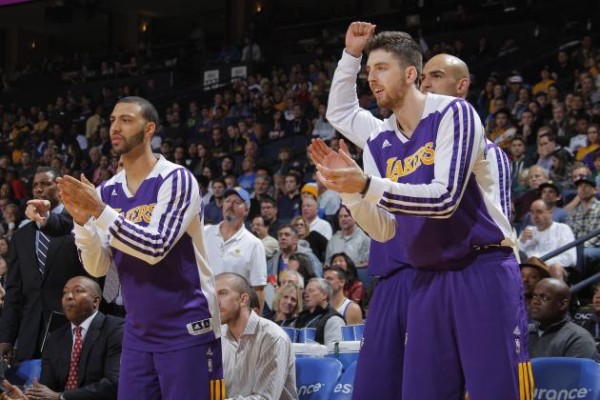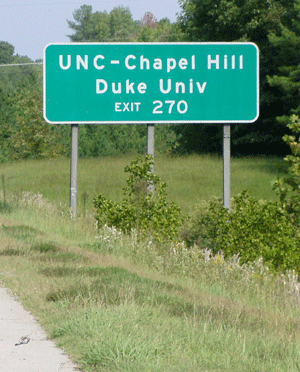Tobacco Road Rivalry Morphs into Friendly Bond in Los Angeles
Posted by Chris Kehoe on February 14th, 2014Both Ryan Kelly and Kendall Marshall were highly regarded prospects coming out of their respective high schools in the south — Marshall from Bishop O’Connell in Northern Virginia and Kelly from Ravenscroft Academy in the heart of ACC country, North Carolina. Marshall was the pure, pass-first point guard who at 6’4” could see over the top of most defenders, and Kelly was a 6’11” reed thin stretch-four. Both chose to play in the ACC, but at different programs that happened to be a part of one of the biggest rivalries in all of sports. Marshall went to North Carolina, where he bid his time behind Larry Drew until he set an UNC single-season record with 351 assists and won the Bob Cousy Award his sophomore season at Chapel Hill. While Marshall was breaking records in his first two seasons as a Tar Heel, Kelly had a longer and more arduous route to prominence as a Blue Devil in Durham. Kelly really emerged as a junior and senior, where he began to average over 25 minutes per game and double figure points. He clearly became an integral part of Duke’s interior defense as well, not rebounding extremely well for his size but being a great help defender, communicator and rim protector alongside Miles and Mason Plumlee. His defining moment came in his return from injury in a 36-point performance versus a loaded ACC champion Miami (FL) team at Cameron Indoor Stadium.
Unfortunately during their collegiate careers, both Kelly and Marshall suffered through rough injuries, Kelly with a recurring foot problem that caused him to miss a good stretch of games and Marshall’s fractured wrist which took him out of the 2012 NCAA Tournament. But even after his wrist injury, Marshall declared for the NBA Draft and was taken in the late lottery at 13 by the Phoenix Suns, one pick before UNC teammate John Henson. A product of a crowded backcourt of Goran Dragic, Shannon Brown, Sebastian Telfair and even Jared Dudley, Marshall struggled to find consistent playing time. But, Marshall also lacked the ability to create for himself, score in isolation, or shoot from the perimeter. His size was a huge benefit at the next level but his lack of elite athleticism had people worried if he would ever make it in the NBA.












































